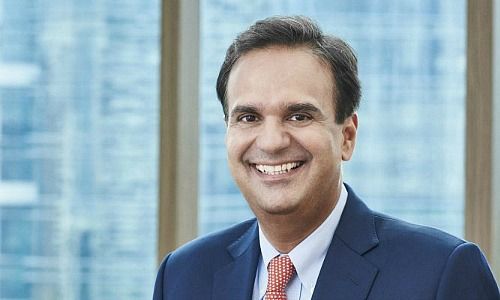Vikram Malhotra: «We Are Definitely A Market Leader»
Bank Of Singapore’s Non-Resident Indian business has grown at a compounded rate of 30 percent over the last five years. finews.asia speaks exclusively to the man credited with its success – Vikram Malhotra.
Insiders often refer to it as the Bank of Singapore for its near-dominance of the local market. They are only half-joking. With $110 billion in assets under management at the end of September 2019, it is undoubtedly one of the fastest-growing large private banks in the region.
Its 2016 acquisition of Barclays’ wealth management business in Hong Kong and Singapore netted it $13 billion in assets and 60 bankers, the best-known of who is Vikram Malhotra, now head of Bank of Singapore’s South Asia and Middle East business.
Not Chasing Assets Or Relationship Managers
Not surprisingly then, Malhotra himself refers to the deal as «one of the most successful acquisitions and integrations in our industry». Undoubtedly, it also boosted the bank’s network within the South Asian community as well as its ability to service this extremely competitive segment. «We are definitely a market leader,» Malhotra says of the bank’s Non-Resident Indian (NRI) business, three years after he moved from the British bank.
However, he is more circumspect about what the road ahead may look like. «We are not here to chase a particular asset target or a relationship manager. We aim to be the best-in-class and are confident that asset growth is a natural consequence of this,» he says. It is rather difficult not to be skeptical of the claim, given that the NRI market is one of the most fiercely contested turfs for bankers.
Malhotra himself has overseen a relatively large team of 80 NRI bankers spread between Singapore, Hong Kong and Dubai International Financial Centre (DIFC). «We are always on the lookout for good talent,» Malhotra concedes, «but we don’t have hiring targets. I would say we pay competitively but we definitely do not pay a premium to market.»
NRI Clients Are Changing
A veteran of the space, Malhotra is uniquely placed to comment on how different the financial priorities of the Indian diaspora are from what they were even a few years ago. «I have been in the Non-Resident Indian (NRI) market since 2006, it has evolved tremendously over that time,» he says. «It is no longer about the highest loan value at the lowest spread,» he clarifies referring to Indian clients’ well-documented penchant for leveraged investments.
«Of course loans can help significantly boost yields in client portfolios and the credit rating of the bank [it was rated Aa1 by Moody’s] is an advantage but loans are no longer the only aspect of the relationship clients pay attention to.» Increasingly complex and unpredictable markets have tempered the propensity of clients to make self-directed investment decisions. «Clients have become more delegative than they used to be,» Malhotra agreed.
«Discretionary portfolio management is something Indian clients are now beginning to pay attention to,» he says. It helps that the bulk of his business is made up of ultra-high-net-worth individuals who tend to be more disciplined risk takers than those lower down the wealth continuum.
Risk Is A Four-Lettered Word
But risk is a topic that appears to preoccupy Malhotra more than it does some of his peers in the same niche. «We have a very dynamic risk model which encourages clients to diversify and rewards them for doing so,» he explains.
«On the other hand, the model penalizes instances of product or country concentration by increasing the cost of funding to the client or decreasing the loan amount available to him. We also use analytics to stress-test portfolios regularly, ours is a very data-driven approach to advice,» he says.
One Team, One Segment, One Approach
«We can offer clients a whole spectrum of product from sophisticated Blackstone, KKR, or Oaktree investment opportunities to regular fixed income bond portfolios,» Malhotra explains, «but our biggest differentiator is that we operate as one unified global South Asia team across all jurisdictions – one team, one segment, one approach.»
Talent moves seamlessly between markets, following clients or market opportunities and Malhotra says it is not unusual for bankers to move from Singapore to Dubai or vice-versa.
Another Differentiator
Although relationship managers usually take center stage when it comes to a wealth management relationship, Malhotra credits the bank’s investment counselors with creating yet another differentiator.
«Because clients greatly value local expertise, we have onshore investment counselors,» he says, «for example, a client could walk into the Dubai branch, and speak with an investment counselor who will have an in-depth understanding of the region. Investment counselors at Bank of Singapore are client-facing so they are as likely to schedule regular meetings with clients as relationship managers are. Clients benefit from having different perspectives on their portfolio.»





















